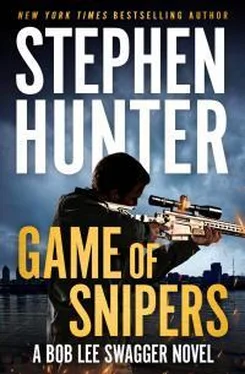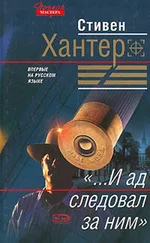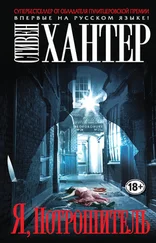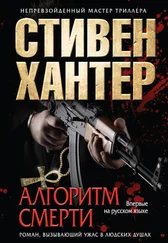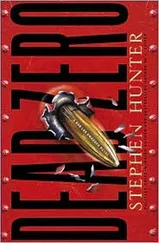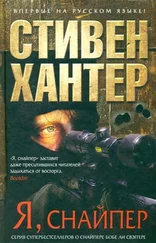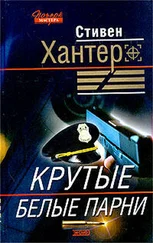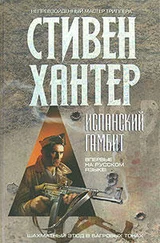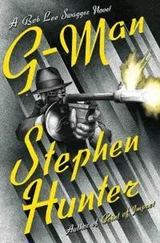Then he rubbed it out, and said, “Who’s Harvey Weinstein?”
Cop shop, Rock Springs, Wyoming
It was as if her name was Detective. Her last name was Murphy, but people just called her Detective. To look at her was to know why: she had that glare of butch aggression, a face unsoftened by makeup or internal mirth, family, love. If she’d ever had any of them, it was a long time ago. You wouldn’t think life in a city of twenty-six thousand would have eroded her softer components so relentlessly, but it made sense when you realized this was her second department, after fifteen very tough years in Salt Lake City Metro. She’s come to Rock Springs for the landscape and the peace and quiet. She’s found one — the landscape was everywhere — but not the other two.
“Detective, for some reason Rock Springs has the highest rate of homeless depletion in America,” said Nick.
“I’m surprised anybody keeps tabs,” she said.
“I’m not too sure that the figures are reliable, with the single exception of yours. But it’s clear from the report your chief forwarded that you’re the only one paying attention.”
She lit a Marlboro, offered one each to Nick and Bob, who each declined, and took a deep draught. She wore jeans, packed a Smith .357 four-inch on her right hip, a plaid shirt, a five-pointed law enforcement star, boots that had been through fertilizer a time or two.
The three sat on a bench outside Rock Springs’s main station, a nineteenth-century brick extravaganza, from which men with Colts and Winchesters had gone to enforce the law a century before. She would have been happy among them.
“It’s mostly Indians,” she said. “They get in all kinds of trouble. You tell me why. But I’ll tell you how. Meth, speed, coke, Mexican Mud, now opioids. They’re always doing something to fuck themselves up, and if it’s off the res, it’s on us to clean it up. Such beautiful folks too. But you want to hear about our hobos. Oh, wait, can’t call ’em that. Our homeless .”
“You say that of a population you estimate at over seventy-five, at least six have gone missing in the last three months. Not moseyed away, not died in ditches, not frozen, or hit by big rigs on the interstate, but just vanished — one day here, the next day not?”
“Yep, totally. It actually stopped for a while, then, the last few days, another guy ups and vanishes. Then comes your alert.”
Bob and Nick looked at each other. Without having to say it, each man thought of Mr. Gold’s inquiry about whether Juba would refresh his skills with another run-through.
Detective continued. “By my calculations, Rock Springs is weird. Used to be a hard-bitten coal town, but, of late, it’s shared in the tourist boom. That’s why you see all the cornball Old West cowboy shit around. Anyhow, with tourists, you get homeless, as old-school settlers are too judgmental to give nickels and dimes to the scarecrows. But the tourist hands over five-spots just so they won’t have to look at them. So they’re drawn here in the warmer months. Progressive city council, so we can’t get rough with ’em. They hang on somehow. I got to know a few, that’s why I can tell what’s going on. They talk to me. I try to talk for them, but nobody listens.”
“We’re listening.”
“It started about three months ago. I picked up on it fast. ‘Where’s Paul?’ I had to know, because one day Paul was gone.”
“Paul was special?”
“Most of them are self-made wrecks. Paul was wrecked by fate. He had no character flaws. It’s just that God decided it was time to squash a bug, and Paul lost the bug lottery.”
“What was his deal?” asked Nick.
“Paul Finley. Beloved English teacher at Rock Springs High. By all accounts, smart, funny, generous, forgiving, concerned. One day, he backs out of his garage and kills his daughter. I guess some folks can come back from that, but he wasn’t one of them. He just starts falling through pathologies. Drunk, unemployed, suicidal, drug-addicted, divorced, on the streets. We tried hard — and I mean everybody — to help out. But he couldn’t make it back. Last time I saw him, he was sawing away on a Robitussin-and-Ripple high in an alley behind North’s, the restaurant. Maybe if I’d pulled him in that night. But I didn’t.”
“And?”
“And nothing. Gone. I noticed a few days later and asked. Nope, just gone. No one knew where.”
“Is that odd?”
“It is. These folks don’t have homes, but they do have a kind of community. They talk. Nobody leaves without good-byes, advice on where it’s better, towns that are softer, the weather easier, blue less inclined to hit. But Paul was just gone.”
They waited. She took a few puffs.
“Jerry was next. Followed by Husky. Finally, Frank. Same deal, just gone. No one saw a thing. I got an old wheezer named Big Bill to talk. He said he saw three guys come into the alley — the homeless bomb out most nights in an alley that runs two blocks behind the North Street restaurants — give Frank an injection, and load the guy into an SUV. It took about thirty seconds. They’d done it before. Then it stopped.”
“And you say it started up again?”
“Charlie Two-Toes. Lakota Sioux, proud when sober, a mess when drunk, which was most of the time. Gone, no trace. I keep trying to tell people. I sort of want to get a night watch set up, or something, but there’s not much interest. It’s a ‘Good riddance’ sort of thing.”
They were silent. She lit another cigarette. Over the buildings, mountains filled the day with snowy grandeur and cheap irony.
“Say,” she finally said, “what is this all about anyway? Nobody gave a damn, and suddenly big actors from the FBI come to town, including this one here who doesn’t say a thing but has SWAT eyes.”
“I do talk,” said Swagger, “but not this time.”
“So you can’t tell me a thing?”
“We’d love to tell you the Bureau had opened a new project to examine crime against the homeless on a national scale,” said Nick, “but that wouldn’t be true. I can only say, this touches on a national security issue that demands immediate attention. Yours is the best break we’ve gotten. Thank you for paying attention and caring.”
“It’s just such a downer to see the waste. Most of them were something, could still be something, but they just somehow lost whatever will it takes to play the game. They floated until they went under.”
“Can you give me a little insight on the area?”
“Sure. Glad to help.”
Swagger said, “We’re looking for a certain place. It would be big and private. Someone rich would own it. It would be way out of any town. The owners would probably keep a real low profile. You could drive by it a hundred times and never notice it.”
“All the big rich are up 191 in Sublette country toward Jackson Hole. Forty miles up, maybe. Some historic spreads, like the Hanson Ranch. It’s now owned by some Southern California corporation for executive retreats, but it was built on coal-and-railroad money. Huge. Goes on and on and on. You could do anything there, and nobody’d know a thing.”
“Does the region have a name?”
“It’s called Pine Valley. Little town at the center, some posh restaurants. There’s a private airport where the haircuts jet in from their other places in the Caribbean or the South of France. They don’t hang out much at the 7-Eleven, so I can’t tell you too much more.”
“That’s very helpful, Detective. I’ll send your chief a letter.”
“He’d just throw it away. I’m a pain in the ass.”
* * *
The drones, flying at sunset high enough to disperse their engine noise, always out of the direct rays of the sun so they didn’t sparkle, came back with the goods, from five thousand feet that looked, under magnification, to be more like five hundred. Swagger went through the images at Hill Air Force Base, in Ogden, Utah, just west of Salt Lake City, which was the nearest spot with the necessary technology.
Читать дальше
